WAYAKIT: The sweet smell of success
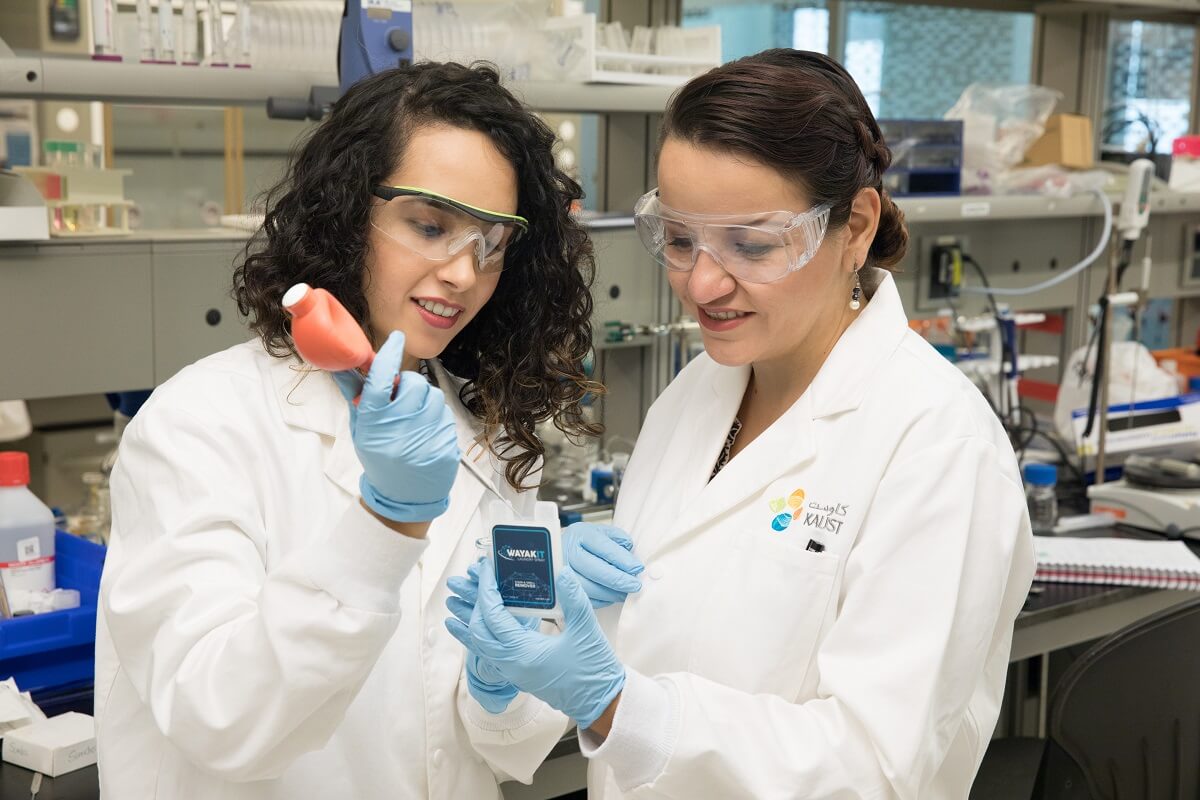
KAUST Ph.D. students Sandra Medina (left) and Luisa Javier (right) created instant laundry spray WAYAKIT to combat the problem of dealing with dirty clothes while traveling. Photo by Khulud Muath.
By David Murphy, KAUST News
All savvy international travelers can attest to one of the less glamorous downsides of traveling—trying to keep clothes clean and fresh from stains and smells accumulated while on the move.
Two well-traveled and entrepreneurial-minded KAUST Ph.D. students—industrial engineer Luisa Javier and chemical and environmental engineer Sandra Medina—shared the frustration of carrying dirty clothes while traveling without finding a travel-friendly laundry solution. To tackle this challenge, they created instant laundry spray WAYAKIT, a compact, organic and portable multi-cleaner and odor remover.
The product's parent company, the biotechnology-based startup WAYAK Group, was established to relieve everyday travel concerns and transform the laundry industry by creating affordable solutions with low water and energy consumption needs.
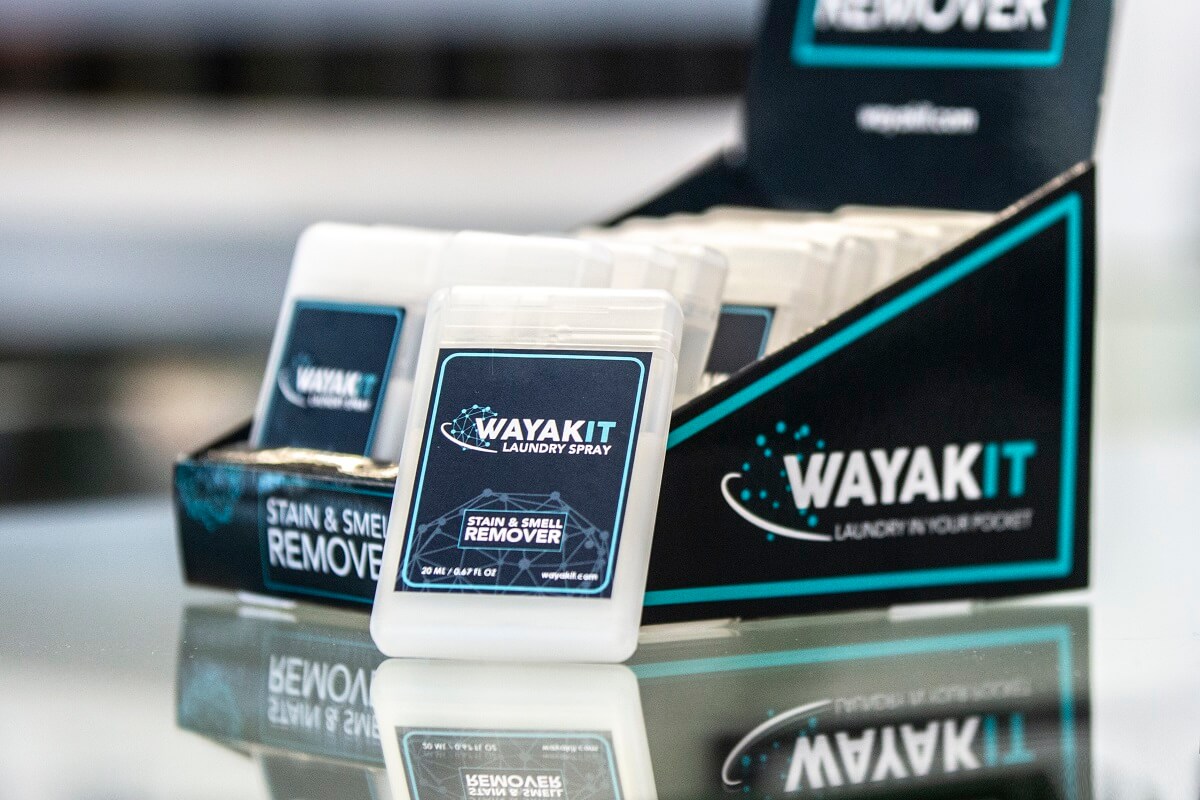
WAYAKIT, a product of biotechnology-based startup WAYAK Group, degrades molecules that cause bad odors and also solubilizes stains. Photo by Khulud Muath.
"When we started the WAYAK Group, we were not looking to become entrepreneurs," Medina, CTO of WAYAK Group, explained. "We were just two traveling engineers who became frustrated with the limited and ineffective laundry options available—for example, so-so stain pens that only work on half of your clothes. The 'spark' of WAYAKIT was born from having tried several travel laundry solutions [ranging] from expensive washing services to DIY disasters."
"We found a way to effectively wash clothes without the use of excessive water or harmful chemicals," added Javier, CEO of WAYAK Group. "We found a way to contribute to traveling on a budget without lugging around a plastic bag of dirty laundry."
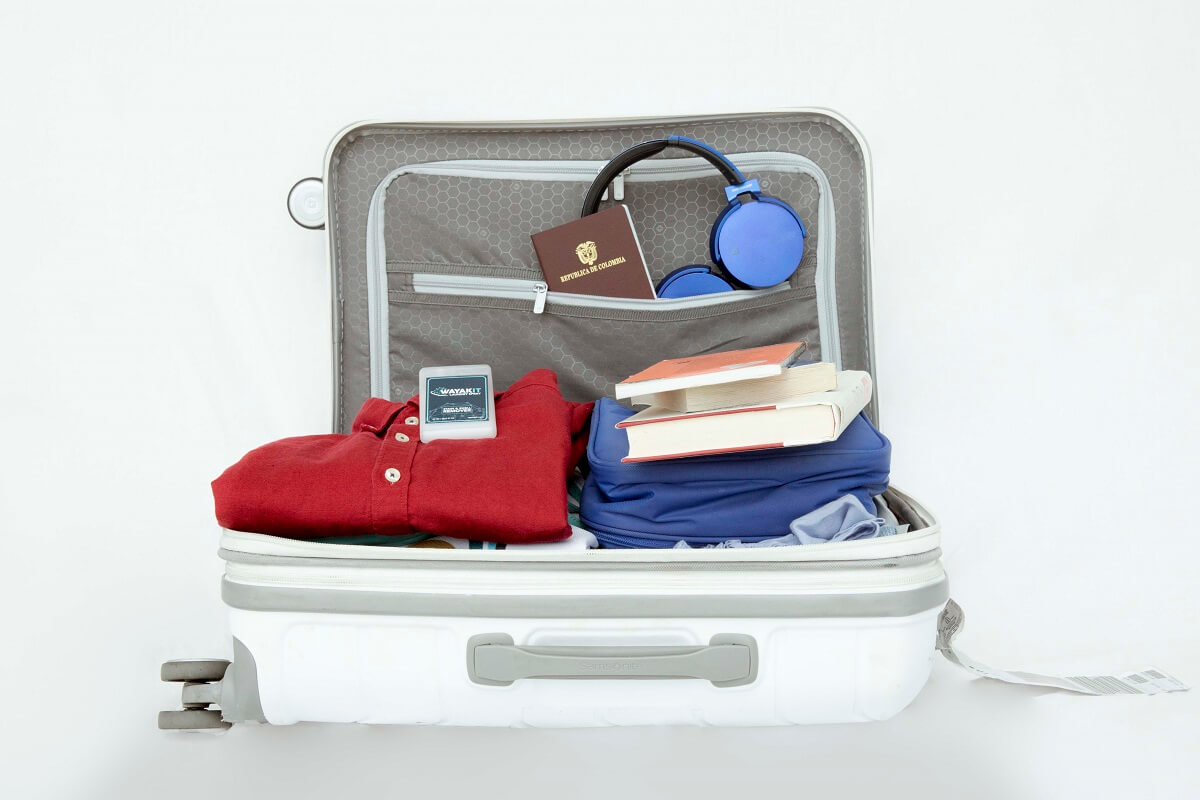
WAYAKIT, created by KAUST Ph.D. students and entrepreneurs Luisa Javier and Sandra Medina, is a traveler-friendly compact, organic and portable multi-cleaner and odor remover. Photo by Khulud Muath.
Biotech in a laundry spray
Javier and Medina are both completing their Ph.D. studies in the University's Water Desalination and Reuse Center. Javier's research focuses on the study of the physical properties of biofilms in membrane systems to solve or minimize the negative impacts of biofouling during reverse osmosis processes for desalination. Medina studies fouling mechanisms and the ceramic membranes crucial to the treatment of produced water occurring during the oil extraction process.
The two avid travelers used their shared scientific knowledge to create WAYAKIT using biotechnology to degrade molecules that cause unpleasant odors. Through rigorous laboratory testing, Javier and Medina selected the right combination of enzymes and other components to target how malodor is generated while also solubilizing stains.
Furthermore, the pair consulted research papers highlighting state-of-the-art research into axillary malodor and its causes. Axillary malodor is generated by the bacterial degradation of skin secretions (from apocrine glands) and is enhanced by sweat. Their research also included the unenviable task of smelling odorous garments to improve the efficiency of their formulations.
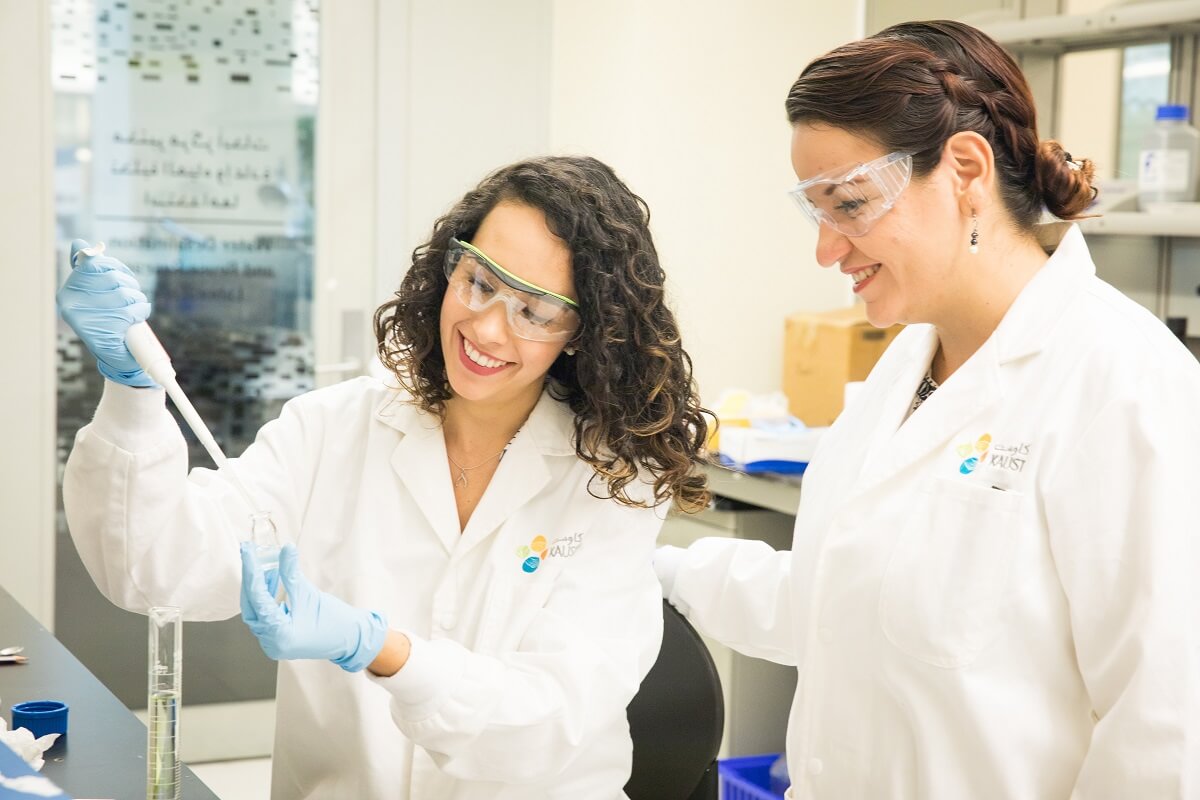
KAUST Ph.D. students and entrepreneurs Sandra Medina and Luisa Javier spent long hours working in the University's labs to create instant laundry spray WAYAKIT. Photo by Khulud Muath.
"It has been found that two types of bacterial species contribute to axillary malodor: Corynebacterium and Staphylococcus," Medina said. "Apocrine glands secretions contain organic compounds that work as nutrients for the bacteria and are transformed into three types of volatile molecules which we perceived as 'bad' or 'smelly:' volatile fatty acids, thioalcohols (or mercaptans) and odorous steroids."
"Many factors influence underarm odors, such as age, gender, genetic factors, hygiene, environmental factors and the use of cosmetics," she continued. "The deodorant industry is, of course, very interested in this type of research, and they have standardized the different types of underarm odor based on olfactory studies."
"You can only imagine how many different smelly garments we had to smell in the lab to improve the efficiency of our work," Javier noted.

WAYAKIT creators and KAUST Ph.D. students Luisa Javier (left) and Sandra Medina (right) credit the success of their product to the support given to them by the KAUST Entrepreneurship Center and many different individuals at the University. Photo by Khulud Muath.
Supporting WAYAKIT
Outside of the long hours in the lab, the WAYAKIT founders found inspiration and support from within KAUST to bring their idea to fruition.
Javier and Medina recognize that without assistance from KAUST community members; University faculty, students and staff; and the KAUST Entrepreneurship Center—and the state-of-the-art laboratory facilities found on campus—their conceptual design could never have become a fully realized startup and product.
"There have been many people who have supported us in this process, and definitely the conditions found at KAUST have accelerated the creation of WAYAKIT," Medina noted. "The amazing team in the Entrepreneurship Center gave us—and keep giving us—the tools and support we need for our entrepreneurship goals. We took part in the 'New ventures and product innovation' course, and we participated in the different KAUST STEAM [science, technology, engineering, art and mathematics] Innovation Challenges...[W]e were [also] part of the TAQADAM accelerator program and showcase."
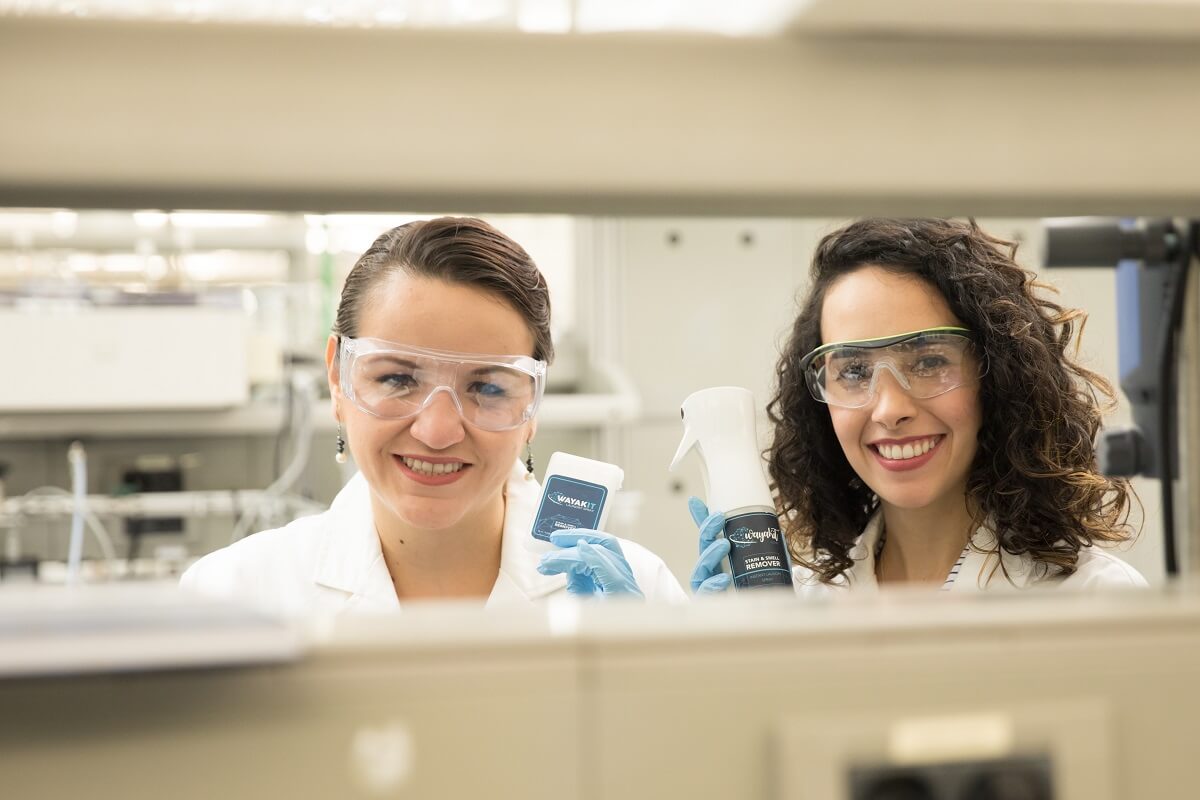
Entrepreneurs and KAUST Ph.D. students Luisa Javier (left) and Sandra Medina (right) aim to make instant laundry spray WAYAKIT an essential for savvy travelers. Photo by Khulud Muath.
"We also did more than 100 interviews with KAUST community members about their laundry habits at home and while traveling," added Javier. "These interviews gave us all the information we needed. This input from people from different countries was key to our success, and the discussions brought new ideas which inspired us to go further with our product. Our advisors have also been very supportive in letting us manage our time and put our full effort into WAYAKIT parallel to our ongoing Ph.D. research."
An impactful entrepreneurial journey
WAYAKIT's founders are steadfast in their commitment to make WAYAKIT a "must-have" travel accessory. They've earmarked 2019 and 2020 as the period when their strategic marketing plans will come into full effect.
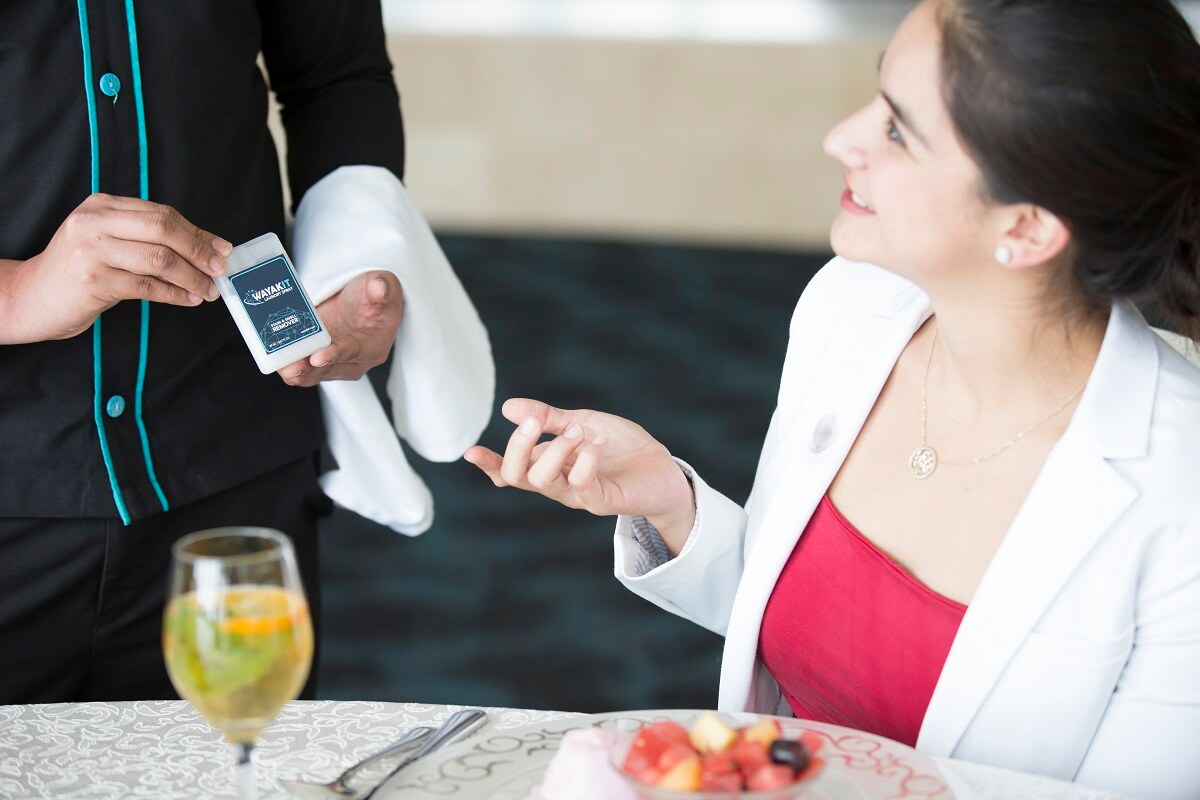
WAYAKIT's creators aim to assist the hospitality industry by providing customers with their instant stain removal spray. Photo by Khulud Muath.
"This year, we are setting up the requirements so that most of our founders can work full-time on this project, and by 2020, we want to expand further and sell WAYAKIT to the world," Medina said. "Our go-to market strategy is helping the hospitality industry to enhance its customer service by providing customers with WAYAKIT when they experience a staining accident."
"We are also beginning our commercialization process in Saudi Arabia and in our home countries of Colombia and Mexico through our distributors," she continued. "[O]nce we are incorporated in the Kingdom, we will continue to sell our product on Amazon and Souq.com."
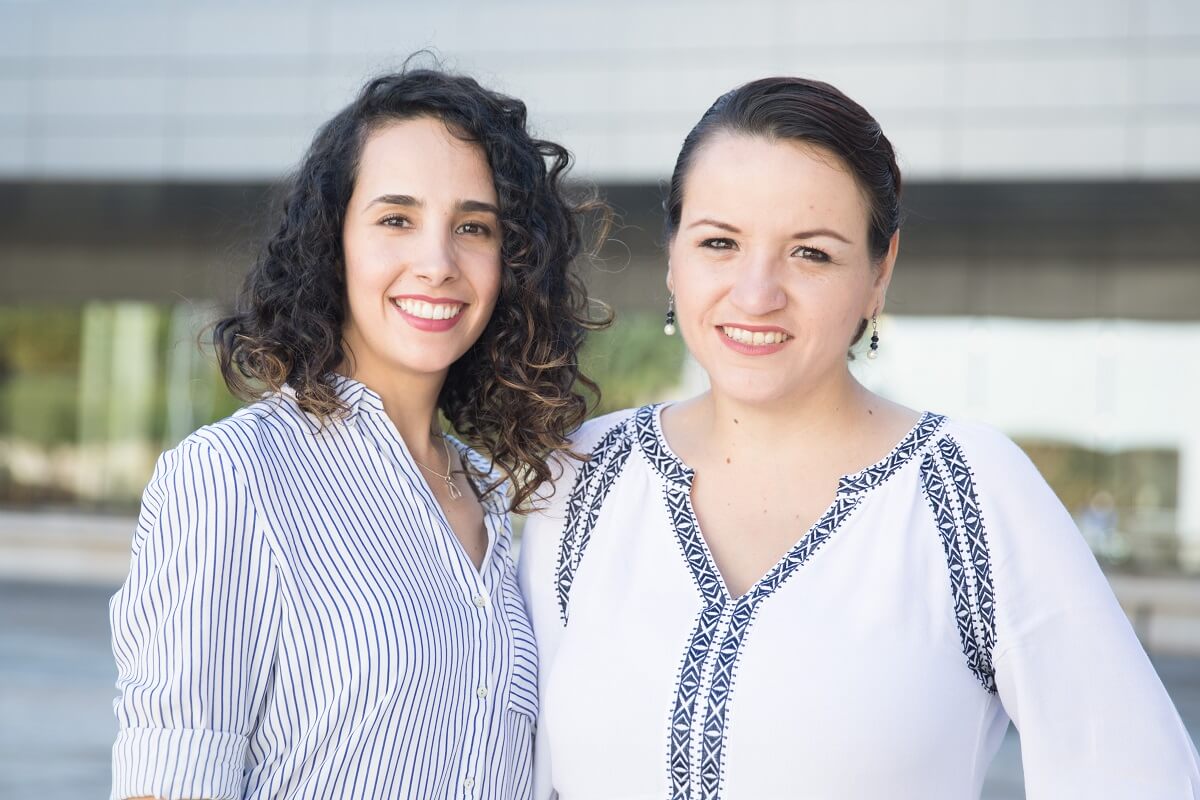
WAYAKIT's creators Sandra Medina (left) and Luisa Javier (right) balance their exciting entrepreneurial journey with their Ph.D. studies at KAUST. Photo by Khulud Muath.

